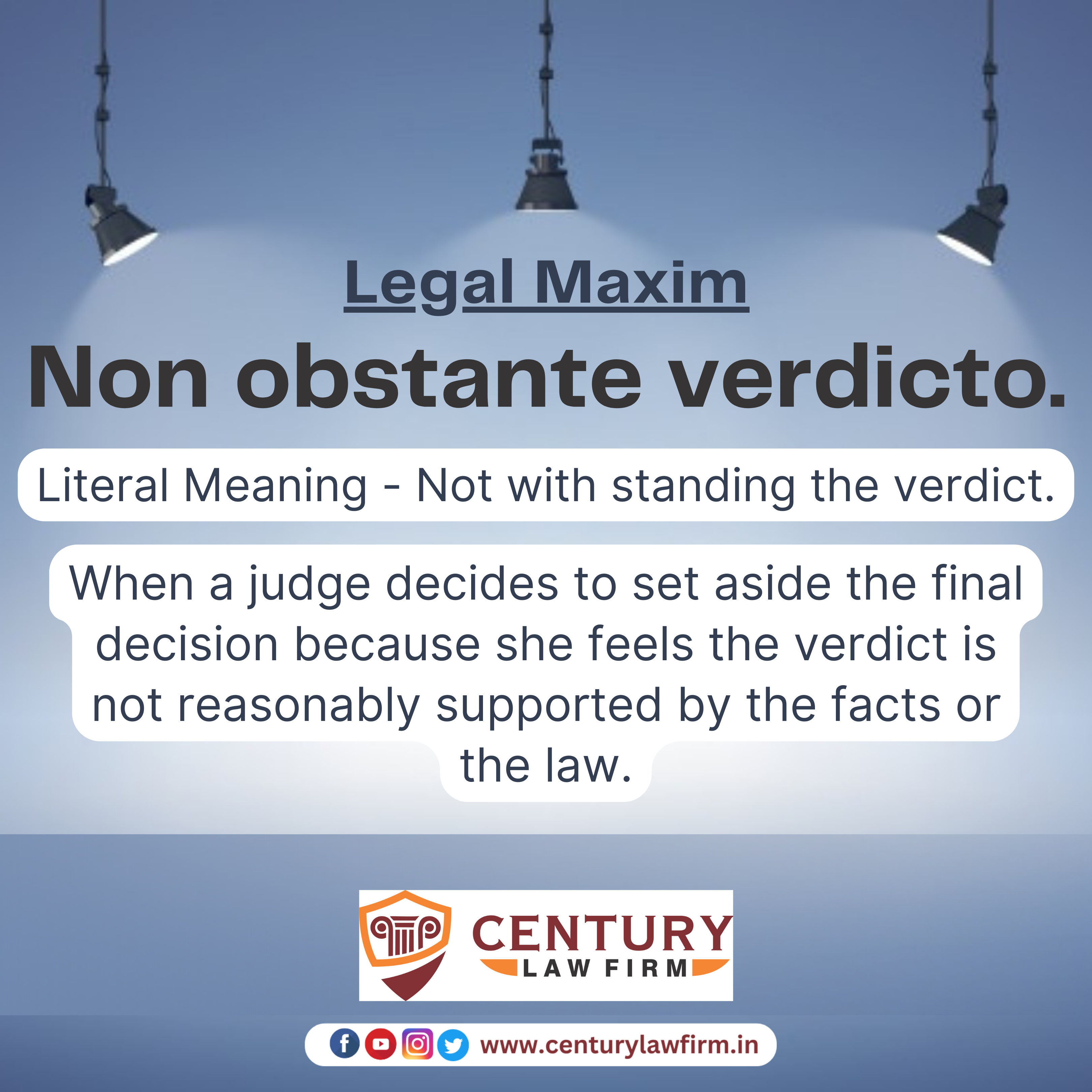Literal Meaning – Not with standing the verdict.
When a judge decides to set aside the final decision because she feels the verdict is not reasonably supported by the facts or the law.
“As a parenthetical note, we point out that judgment n.o.v. literally means judgment non obstante verdicto
“Non obstante verdicto” is a Latin legal maxim that means “notwithstanding the verdict.” The maxim is commonly used in the context of legal appeals and refers to the principle that a court can overrule a jury’s verdict and enter a different judgment.
In other words, “non obstante verdicto” is a legal doctrine that allows a higher court to set aside a jury’s decision if it is deemed to be legally incorrect or against the weight of the evidence. This can happen in cases where the jury’s verdict is inconsistent with the law, where there was misconduct or bias during the trial, or where the evidence presented does not support the verdict.
The use of the “non obstante verdicto” doctrine is relatively rare, as courts generally prefer to defer to the decisions of juries. However, it is an important safeguard in the legal system, as it allows for the correction of errors and ensures that justice is served.
It is important to note that the use of the “non obstante verdicto” doctrine is subject to certain limitations. For example, it is typically only used in cases where the verdict is clearly erroneous, and not merely where the judge disagrees with the jury’s decision. Additionally, the doctrine is not available in all jurisdictions, and the rules governing its use may vary depending on the jurisdiction and the type of case involved.
Overall, “non obstante verdicto” is an important legal principle that reflects the importance of ensuring that the law is applied correctly and that justice is served. While it is relatively rare for a court to overrule a jury’s decision, the doctrine provides an important safeguard in cases where the verdict is clearly erroneous or against the weight of the evidence.



